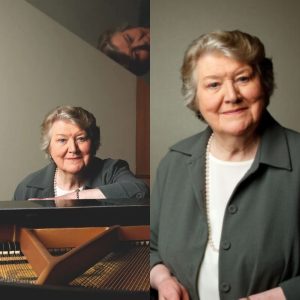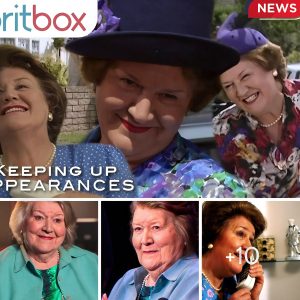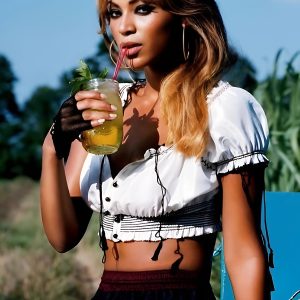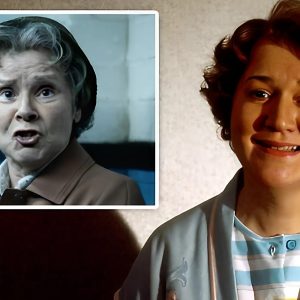Farewell to the Bouquet Residence: Why Keeping Up Appearances Truly Ended and What the Future Holds
For millions of viewers around the world, Sunday evenings in the 1990s were punctuated by the unmistakable voice of Hyacinth Bucket (pronounced Bouquet, thank you very much), as she fussed about with her Royal Doulton china and orchestrated yet another ill-fated candlelight supper. BBC1’s Keeping Up Appearances, which ran from 1990 to 1995 across five series and 44 episodes, became an iconic staple of British sitcom history.
But when the curtain fell on Hyacinth’s pastel-hued world, fans were left with a single burning question: Why did it end while the show was still at its peak? With no official finale, just the final festive installment “The Pageant,” Keeping Up Appearances simply stopped. And for many, it felt like an abrupt exit for one of television’s most memorably delusional heroines.
So what truly led to the end of Keeping Up Appearances—and is there any hope for Hyacinth’s grand return?
The Powerhouse Behind the Periwinkles: Patricia Routledge’s Exit
At the heart of Keeping Up Appearances stood Dame Patricia Routledge, whose brilliant comedic performance as Hyacinth turned a potentially one-note caricature into a masterclass in timing, physical comedy, and emotional nuance. But even as Hyacinth was winning over households across the UK and beyond, Routledge was quietly preparing to say goodbye.
In interviews years later, including a candid 2017 conversation, Routledge revealed that her decision to step away was deliberate and thoughtful. Inspired by the words of legendary comedian Ronnie Barker, she believed strongly in the value of leaving a show at its peak rather than dragging it into creative stagnation. “You must get off the stage while they’re still applauding,” she said, and Hyacinth—no matter how demanding of attention—would be no exception.
Routledge also expressed concern over being permanently typecast as Mrs. Bucket. For an actor with a career that spanned Shakespearean theatre, opera, and musical comedy, the risk of forever being remembered as a social-climbing suburbanite was a real one. Instead, she went on to reinvent herself as Hetty Wainthropp, a retired woman-turned-private-investigator in the BBC’s Hetty Wainthropp Investigates starting in 1996—a move that not only showcased her range, but also firmly closed the chapter on Hyacinth.
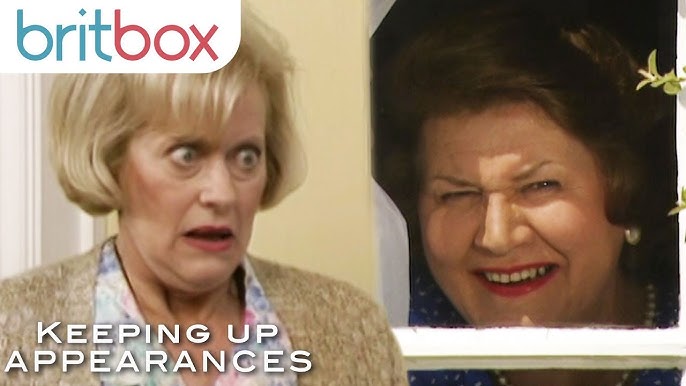
Clive Swift, who portrayed the ever-suffering Richard Bucket, later confirmed in a BBC interview that Routledge’s departure was the defining blow to the show’s future. Without its star, and with no desire to recast such an iconic role, Keeping Up Appearances simply couldn’t continue in its original form.
Was the Bouquet Wilting? The Question of Creative Fatigue
Even for fans, there was a growing sense that the show’s formula—though beloved—was beginning to show signs of repetition. In that same 2017 interview, Routledge herself noted that series creator Roy Clarke was “recycling some old ideas that we’d already dealt with.” And it’s true: while the absurdity of Hyacinth’s upper-class aspirations clashing with her family’s unapologetic working-class reality never failed to deliver laughs, the premise was, by its nature, limited.
Each episode typically followed a similar structure: Hyacinth schemes to impress some poor soul of status—be it the vicar, the Major, or an imagined royal cousin—only to be derailed by her slob of a brother-in-law, Onslow (Geoffrey Hughes), or her flirtatious sister Rose. It was a beautiful formula—but one that could only stretch so far before risking predictability.
In many ways, Keeping Up Appearances bowed out gracefully before becoming a parody of itself. Its final special, The Pageant, aired in December 1995, featured Hyacinth donning a medieval costume and attempting to direct a disastrous local performance. It was classic Hyacinth—and the perfect unintentional swan song for a character who would never see herself as anything less than royalty.
Changing Tastes and the End of the Traditional Sitcom Era
Beyond internal factors, the cultural tides of television were also shifting. As the late ’90s approached, British and global audiences were beginning to favor grittier, more innovative formats. The rise of mockumentary comedies like The Office and the encroaching wave of reality TV signaled a departure from the traditional laugh-track sitcoms of the previous decades.
Keeping Up Appearances was a product of its time—deliberately theatrical, steeped in middle-class anxiety, and reliant on well-timed farce. But by the time 2000 rolled around, viewers were leaning toward shows that felt more grounded, self-referential, and stylistically bold. In that climate, Hyacinth’s world of etiquette classes and finger sandwiches may have felt increasingly out of step.
Today’s Gen Z viewers, raised on bite-sized, self-aware humor and emotionally complex characters, often struggle to connect with the show’s slower pacing and hyper-formality. While Hyacinth’s antics remain amusing, they exist in a cultural time capsule—one that might require a major update to survive in the current entertainment ecosystem.
Is the Door to the Bouquet Residence Closed Forever?
With Routledge now in her 90s and several key cast members—including Swift and Hughes—having passed away, the prospect of new episodes with the original cast is all but impossible. And yet, in this golden age of reboots and reimaginings, the spirit of Keeping Up Appearances may not be gone for good.
There have long been whispers of a prequel or a modern-day reboot featuring a new cast, possibly reinterpreting Hyacinth for the social media era—a digital-age aristocrat obsessed with followers rather than formalities. While nothing official has materialized, the concept remains ripe with potential, particularly if updated to explore modern class anxieties, influencer culture, and the absurdity of online self-curation.
But any revival would walk a fine line. Without the precise brilliance of Routledge at its center, a reboot would need to reframe the world of Keeping Up Appearances in a way that feels fresh while honoring its origins. A tall order—but not impossible.
A Lasting Legacy of Laughs and Lace
Ultimately, Keeping Up Appearances ended not with scandal or ratings failure, but with intention and integrity. It departed while still beloved, its characters frozen in time, forever hosting candlelight suppers and avoiding visits from Daisy and Onslow. In doing so, it avoided the pitfalls that plague so many long-running sitcoms: creative fatigue, cast shake-ups, and audience indifference.
To this day, reruns of the show continue to draw loyal viewers. Its legacy lives on not just in streaming libraries, but in the fond recollections of fans who still wince every time someone mispronounces “Bucket.”
Would a modern revival sparkle with the same comedic elegance? That remains to be seen. But for now, Keeping Up Appearances remains a perfectly preserved relic of British sitcom brilliance—fussy, fabulous, and just a bit deluded.
